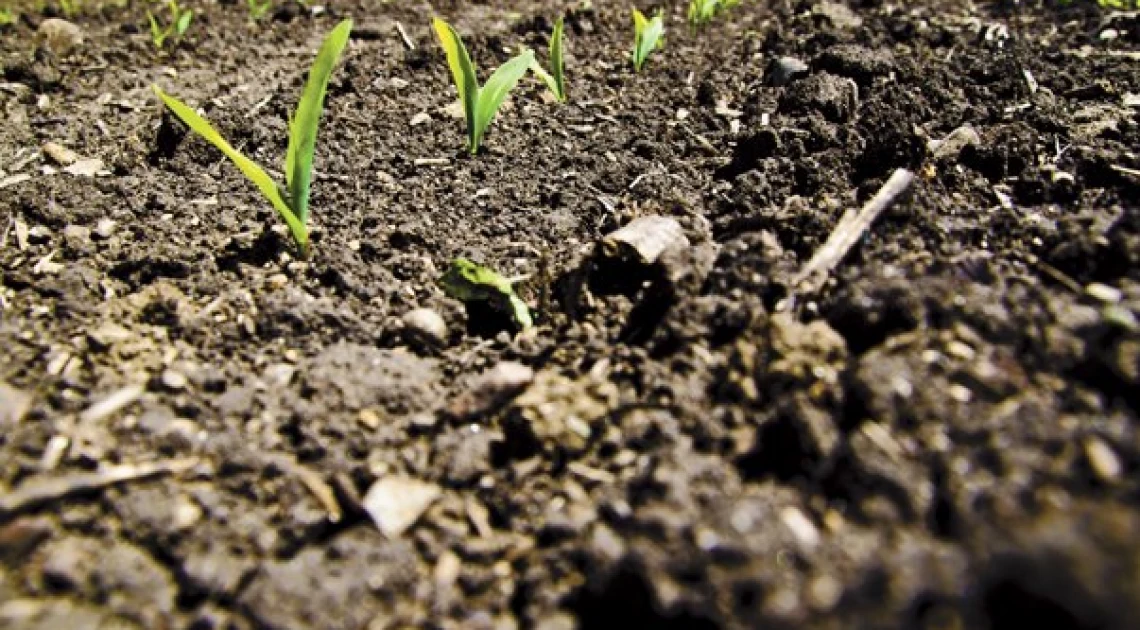OPINION: Synthetic fertilizers detrimental to Kenyan soil

Last week, President
William Ruto announced the commencement of the second phase of the fertilizer
subsidy program that saw the prices of fertilizer drop further to 2500
shillings, down from 3500 shillings for a 50-kg bag.
As reactions emerge
across the country on the success or not of the program's first phase, it's
also essential to bear in mind the effects these synthetic fertilizers have on
our soil.
High use of synthetic
fertilizers has tremendous effects on the health, texture and quality of the
soil, affecting crop production in the long run.
They quickly boost plant
growth but do little to stimulate soil life, improve soil texture, or improve
soil's long-term fertility. Since they are highly water-soluble, it makes it
easy for them to leach into waterways.
These synthetic
fertilizers disrupt the delicate balance of soil flora and fauna, negatively
affecting nutrient availability and soil structure over time.
Synthetic fertilizers
undeniably contribute to increased crop yields in the short term. However,
their long-term impact on soil biodiversity, including the population of
beneficial microorganisms, is a growing concern.
One essential useful
type of fungi that is affected by the extensive use of synthetic fertilizers is
Ectomycorrhizal Fungi (EMF). These tiny but mighty organisms play a crucial
role in making essential nutrients readily available to our crops.
EMF are a group of soil
fungi that form mutualistic relationships with the roots of many plant species.
The fungi enhance the plant's nutrient absorption capabilities through this
symbiotic relationship by extending their hyphal network deep into the soil. In
return, the plant provides the fungi with a share of the carbohydrates produced
through photosynthesis. This mutual exchange boosts nutrient uptake for the
plant and fosters better resistance to stressors like drought and
diseases.
As we welcome the recent
announcement by the president, the country needs to consider and explore other
sustainable alternatives that are safe, affordable and do not harm our soil.
Agroecological practices promote methods that focus on creating sustainable and
balanced ecosystems.
The practice involves
using ecological principles and practices that improve agricultural
productivity while promoting environmental health and social well-being. It
encourages crop rotation, composting, natural pest control, and using local
resources to reduce reliance on synthetic inputs like synthetic fertilizers and
pesticides.
Organic fertilizers,
such as aerobically prepared compost, have proven to be valuable alternatives
that provide essential nutrients and promote the growth of beneficial soil
flora. Compost is a nutrient-rich organic material that is a haven for diverse
microorganisms, including EMF.
Compost sustains these
beneficial organisms when incorporated into the soil, allowing them to flourish
and form symbiotic relationships with plant roots. Zero or minimum tillage
practices, on the other hand, helps preserve soil's natural structure and offer
a stable habitat for soil organisms, allowing them to thrive and continue their
vital role in nutrient recycling.
Furthermore, zero or minimum tillage helps prevent the disruption of the hyphal networks of EMF and other beneficial microorganisms, ensuring continued nutrient transfer to crop plants effectively. As a result, the combination of compost and zero/minimum tillage promotes soil health and fertility, leading to enhanced crop growth and yields in the long run.
With this consideration
in place, there is a need to direct money into agricultural practices that are
sustainable and effective. National and county governments need to allocate
financial support to educational programs and training for farmers, in order to
build their awareness and capacity to embrace agroecological approaches to
farming. Farmers need to be educated on the benefits of these practices and
their positive impact on crop productivity.
Financial incentives
such as subsidies can be redirected to organic inputs and support purchasing of
minimum tillage equipment to encourage farmers to transition towards
agroecological practices.
Collaborative efforts
between research and government institutions, agricultural experts, and farming
communities can further drive innovation and knowledge-sharing regarding the
most effective ways to integrate these sustainable practices into existing
farming systems.
As we celebrate and
recognize the government's efforts in making fertilizers affordable and
accessible to farmers, we must also recognize the long-term impact of synthetic
fertilizers on our soil's health. Embracing agroecology benefits our
environment and empowers our farmers to cultivate resilient and nutrient-dense
crops that contribute to food security and a healthier agricultural landscape
in Kenya.
By Dr. Harun Warui, PhD.
Programme Lead, Food Right and Agroecology, Heinrich Boell
Foundation.
Want to send us a story? SMS to 25170 or WhatsApp 0743570000 or Submit on Citizen Digital or email wananchi@royalmedia.co.ke
Comments
No comments yet.


Leave a Comment